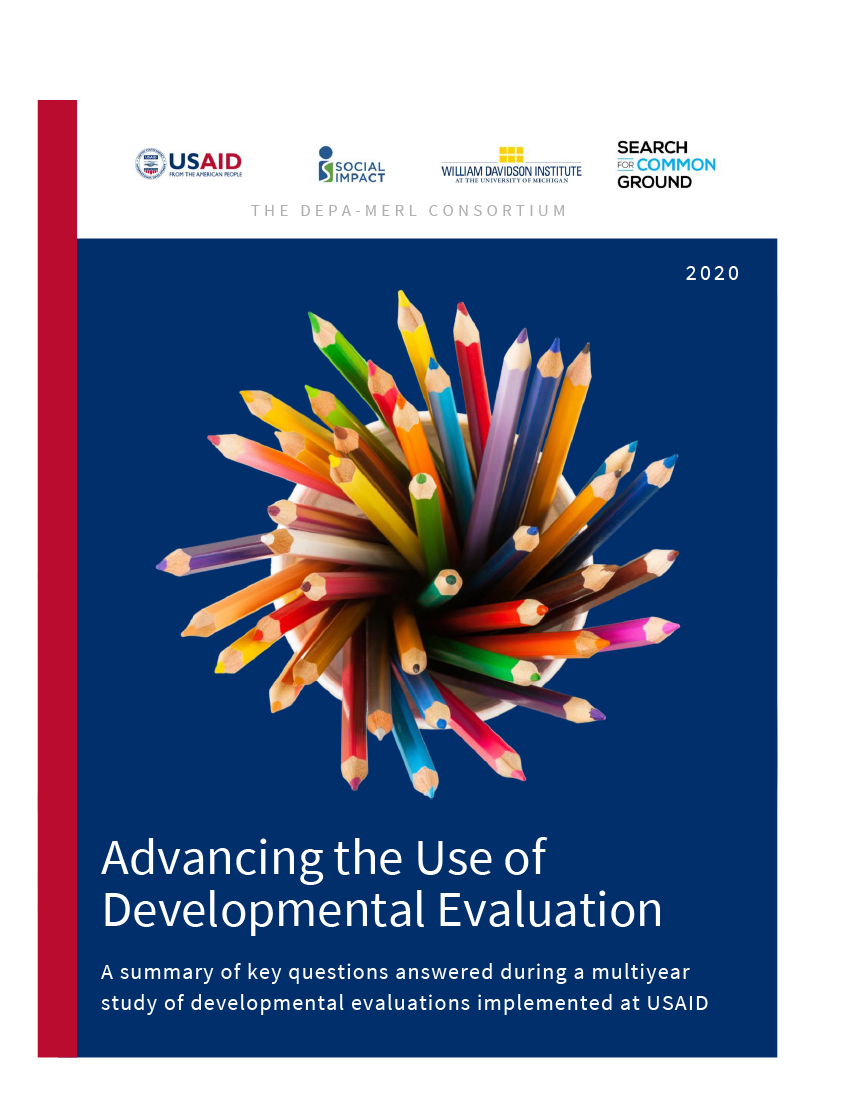- What We Do
- Agriculture and Food Security
- Democracy, Human Rights and Governance
- Economic Growth and Trade
- Education
- Environment and Global Climate Change
- Gender Equality and Women's Empowerment
- Global Health
- Humanitarian Assistance
- Transformation at USAID
- Water and Sanitation
- Working in Crises and Conflict
- U.S. Global Development Lab
Speeches Shim
This report is made possible by the support of the American people through the United States Agency for International Development (USAID). The contents of this presentation are the sole responsibility of the DEPA-MERL consortium and do not necessarily reflect the views of USAID or the U.S. government.
DEVELOPMENTAL EVALUATION PILOT ACTIVITY-MONITORING, EVALUATION, RESEARCH, AND LEARNING (DEPA-MERL) BACKGROUND
DEPA-MERL—situated in the U.S. Global Development Lab’s Monitoring, Evaluation, Research, and Learning Innovations Program at the United States Agency for International Development (USAID)—is testing the effectiveness of developmental evaluation (DE) in the USAID context. DE was created to evaluate innovative programs that operate in complex environments and are thus expected to adapt over time.
REPORT PURPOSE AND EVALUATION BACKGROUND
Since 2016, there have been three DEPA-MERL DE pilots. This report shares findings and lessons learned from across the experiences to facilitate learning from the implementation of DE in the USAID context. Findings shared in this report are based on an independent across-case analysis conducted by one of the DEPA-MERL consortium partner organizations: the William Davidson Institute (WDI) at the University of Michigan. The WDI team collected data to answer the following four research questions:
- Research Question 1: How does DE capture, promote, and enable the utilization of emergent learnings in support of ongoing programming in a complex system, such as in the USAID context?
- Research Question 2: What are the barriers and enablers to implementation of DE in the USAID context?
- Research Question 3: What do key stakeholders consider to be the value (added or lost) of conducting a DE compared to a traditional evaluation approach?
- Research Question 4: What are the key lessons learned from building and managing buy-in for the DE approach in the USAID context?
To answer these questions, a mixed-methods approach was used and included outcome harvesting, document reviews, semi-structured interviews with the Developmental Evaluators and DE stakeholders, and an electronic survey administered to stakeholders.


Comment
Make a general inquiry or suggest an improvement.